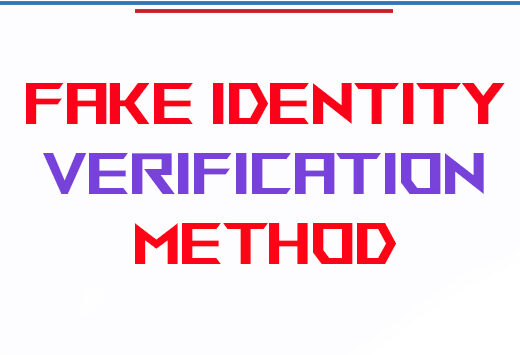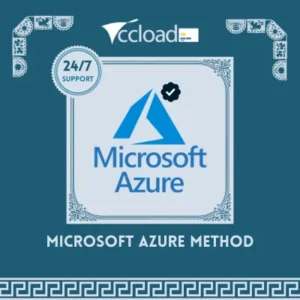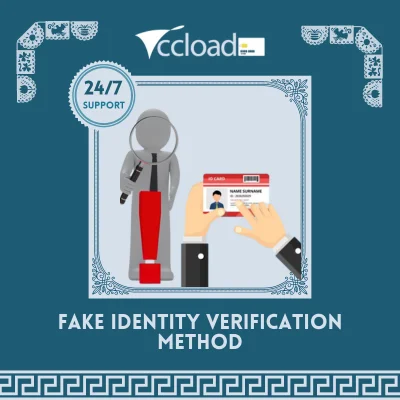Buy Fake Identity Verification Method
- Lifetime Free Support
- 100% legal
- Following Policy
- Full Refunds
- 24/7 Free Support
- Instant Delivery
Instant Automated Delivery Systems.
😊 41 people 43 people 46 people 52 people 29 people 22 people 41 people 16 people 60 people are viewing this right now
Coupon Code : VCCLOAD
We accept
Purchasing fake identity verification methods is illegal and unethical. It can lead to severe legal consequences.
In today’s digital age, identity verification is crucial for maintaining security and trust online. Many industries, including finance and e-commerce, rely heavily on accurate identity checks to prevent fraud and ensure compliance with regulations. Using fake identity verification methods not only undermines these security measures but also poses significant risks.
Legal penalties, financial losses, and damaged reputations are just a few of the potential repercussions. Always prioritize ethical practices and seek legitimate ways to verify identities. Protecting personal information and maintaining trust should be paramount for both individuals and businesses.

Fake Identity Basics
In today’s digital age, fake identity verification methods have become increasingly prevalent. Understanding the basics of fake identities is essential for both individuals and businesses. This section delves into the fundamental aspects of fake identities, exploring what they are and their common uses.
What Is Fake Identity?
A fake identity is a fabricated or falsified set of personal information used to impersonate someone else or create a fictitious individual. This can include fake names, addresses, social security numbers, and other personal details. Often, these identities are created using sophisticated methods to appear legitimate.
Fake identities can be created using various techniques, including:
- Phishing: Collecting real personal data through deceptive emails or websites.
- Data Breaches: Using leaked information from hacked databases.
- Social Engineering: Manipulating people into divulging personal information.
- Document Forgery: Creating or altering official documents.
To better understand fake identities, here’s a table outlining the types of personal information that can be falsified:
| Type of Information | Description |
|---|---|
| Name | Fake first and last names |
| Address | Non-existent or someone else’s address |
| Social Security Number | Generated or stolen numbers |
| Date of Birth | Altered birth dates |
Common Uses
Fake identities are used for various purposes, both malicious and benign. Understanding these uses helps in recognizing and mitigating potential threats.
Some common uses of fake identities include:
- Fraud: Committing financial fraud, such as opening bank accounts or applying for loans.
- Cybercrime: Engaging in illegal activities online while hiding one’s true identity.
- Spying: Gaining unauthorized access to sensitive information or systems.
- Privacy Protection: Protecting personal privacy online by using a pseudonym.
Here’s a list of sectors where fake identities are frequently used:
- Banking and Finance: For opening accounts, and applying for credit cards, or loans.
- Social Media: Creating fake profiles for various purposes.
- E-commerce: Making anonymous purchases or committing fraud.
- Government Services: Applying for benefits or avoiding detection.
Fake identities can be found in almost any sector, making it essential to stay vigilant and employ robust verification methods.
Types Of Fake Identities
Buying fake identity verification methods has become a significant concern in today’s digital world. Understanding the types of fake identities is crucial for businesses and individuals to protect themselves. There are two main types of fake identities: Generated Identities and Altered Documents. Each has its unique characteristics and methods of creation.
Generated Identities
Generated identities involve creating entirely new personas that do not exist in the real world. These identities are often created using sophisticated software and algorithms. The key features of generated identities include:
- Fake Names: Randomly generated names that sound real.
- Fake Addresses: Realistic but non-existent addresses.
- Fake Dates of Birth: Carefully chosen dates that fit the age profile.
- Fake Social Security Numbers: Numbers that follow the format but are not assigned to any real person.
Generated identities can be used in various fraudulent activities. These may include:
- Opening Bank Accounts: Using fake identities to open accounts and commit financial fraud.
- Online Purchases: Making purchases with fake information to avoid detection.
- Phishing Scams: Using fake identities to lure victims into providing sensitive information.
Businesses need to be aware of these methods to enhance their security measures. Implementing robust verification processes can help in identifying and mitigating the risks associated with generated identities.
Altered Documents
Altered documents involve modifying real documents to create fake identities. This type of fraud is more sophisticated and often harder to detect. Key characteristics of altered documents include:
- Real Names: Using real names but changing other details.
- Modified Addresses: Real addresses with slight modifications.
- Altered Dates of Birth: Changing the date to fit a specific profile.
- Genuine Documents: Using real documents that have been tampered with.
Common methods used in creating altered documents include:
| Method | Description |
|---|---|
| Photo Editing: | Changing photos on IDs or passports. |
| Data Manipulation: | Altering data on documents using software. |
| Forgery: | Creating fake signatures and stamps. |
Altered documents can be used for:
- Travel Fraud: Using fake passports to travel.
- Identity Theft: Stealing someone’s identity for financial gain.
- Job Applications: Using fake documents to secure employment.
Ensuring proper document verification methods can help in detecting altered documents. Training staff to recognize signs of tampering can also enhance security.
Online Marketplaces
In today’s digital age, many people seek ways to maintain anonymity online. This has led to a rise in the demand for fake identity verification methods. Online marketplaces have become the go-to platforms for those looking to buy these methods. They offer a wide range of options and ensure that users can easily access what they need. This blog post will guide you on where to buy and find fake identity verification methods for sale.
Where To Buy
Several online marketplaces sell fake identity verification methods. These platforms provide various solutions for those in need. Some popular places include:
- vccload.com: This site offers a variety of fake identity verification methods. It is known for its reliability and customer service.
- Dark Web Marketplaces: Many dark websites offer these methods. However, they are often risky and require special browsers like Tor.
- Forums and Communities: Certain online forums discuss how to buy fake identity verification methods. Users often share tips and sellers’ contacts.
When searching for these methods, it is crucial to research thoroughly. Understand the risks involved and take necessary precautions. Below is a table summarizing the key aspects of each option:
| Platform | Pros | Cons |
|---|---|---|
| vccload.com | Reliable, good customer service | Requires payment |
| Dark Web Marketplaces | Variety of options | Risky, requires a special browser |
| Forums and Communities | Free advice and tips | Information may be unreliable |
Fake Identity Verification Method For Sale
Finding a fake identity verification method for sale can be challenging. Many sellers operate in secrecy to avoid legal issues. Here are some tips to help you find what you need:
- Join specialized forums: Look for forums dedicated to identity verification methods. Members often share information about where to find these methods.
- Use trusted marketplaces: Websites like vccload.com offer fake identity verification methods for sale. They provide detailed descriptions and customer reviews.
- Check reviews and ratings: Before making a purchase, read reviews from other buyers. This helps ensure you are getting a reliable product.
The benefits of fake identity verification methods include maintaining privacy and avoiding identity theft. Many users opt for these methods to protect their personal information. Here is why you might consider using them:
- Anonymity: Protect your real identity online.
- Security: Reduce the risk of identity theft.
- Convenience: Easily verify your identity without revealing personal details.
Why choose vccload.com? This platform is known for its reliability and excellent customer support. They offer a range of products tailored to your needs. How to buy fake identity verification methods from vccload.com is simple. Follow their guides and ensure you get the best product for your requirements.

Verification Methods
Buying fake identity verification methods has become a hot topic. Many are curious about how these verification methods work and their reliability. Understanding these methods can shed light on the risks involved and the techniques used in this shady practice.
Techniques Used
Various techniques are used to create fake identity verification. These methods are designed to mimic legitimate verification processes, making them difficult to detect. Here are some common techniques:
- Photoshopped Documents: Scammers use software to alter legitimate documents. They change details to match the fake identity.
- Stolen Identities: Using personal information from real people. This information is often obtained through data breaches or social engineering.
- Fake Websites: Creating websites that look like genuine verification services. These sites trick users into providing personal information.
- Social Media Profiles: Creating fake profiles with borrowed or fabricated information. These profiles are used to verify fake identities.
Another popular method is using deepfake technology. Deepfakes create realistic images and videos of people. Scammers use these to pass video verifications. Here’s a table summarizing these techniques:
| Technique | Description |
|---|---|
| Photoshopped Documents | Altering legitimate documents using software |
| Stolen Identities | Using personal information from real people |
| Fake Websites | Creating sites that mimic genuine verification services |
| Social Media Profiles | Setting up fake profiles with borrowed information |
| Deepfake Technology | Creating realistic images and videos for verification |
Reliability Issues
Fake identity verification methods come with significant reliability issues. These methods may seem convincing, but they often fail under scrutiny. Here are some common reliability problems:
- Inconsistent Information: Fake documents often have inconsistent details. These inconsistencies can be flagged by verification systems.
- Low-Quality Alterations: Photoshopped documents may have visible edits. Poor quality alterations are easily spotted by trained eyes.
- Outdated Data: Stolen identities may contain outdated information. Verification systems can cross-check data to identify discrepancies.
- Suspicious Activity: Fake websites and profiles often show patterns of suspicious activity. This can raise red flags during verification.
- Technological Limitations: Deepfake technology is advanced but not foolproof. Experts can detect deepfakes using advanced tools.
Verification systems are improving. They use AI and machine learning to detect fake identities. These systems analyze data for inconsistencies and suspicious patterns. Here’s a table showing common reliability issues:
| Issue | Description |
|---|---|
| Inconsistent Information | Details on documents don’t match |
| Low-Quality Alterations | Visible edits on photoshopped documents |
| Outdated Data | Stolen identities may have old information |
| Suspicious Activity | Patterns of suspicious behavior on fake sites |
| Technological Limitations | Deepfakes can be detected by experts |
Ethical Considerations
Buying fake identity verification methods raises serious ethical considerations. Such actions have far-reaching consequences that affect both individuals and society. Understanding these ethical concerns is crucial for anyone thinking about this illegal activity. Below, we explore the moral implications and social impact of buying fake identity verification methods.
Moral Implications
Fake identity verification is morally wrong. It involves deceit and dishonesty. People use these methods to trick others into believing a false identity. This can lead to various harmful outcomes.
Here are some key moral implications:
- Deception: Using a fake identity involves lying. It creates a web of deceit that can harm others.
- Trust Issues: When people find out about the fake identity, trust is broken. This can affect personal and professional relationships.
- Legal Consequences: Using fake identities is illegal. It can lead to fines, jail time, and a criminal record.
Besides, fake identity verification often involves stealing someone else’s identity. This is known as identity theft. It can ruin the victim’s life. They may face financial losses, legal issues, and emotional stress.
Here is a table summarizing the moral implications:
| Aspect | Implication |
|---|---|
| Deception | Lies and deceit harming others |
| Trust Issues | Broken trust in relationships |
| Legal Consequences | Fines, jail time, criminal record |
| Identity Theft | Financial and emotional harm to victims |
Social Impact
The social impact of buying fake identity verification methods is significant. It affects not only individuals but also society as a whole. Here are some of the broader social impacts:
- Increased Crime: Fake identities are often used for illegal activities. This can lead to a rise in crime rates.
- Economic Loss: Businesses suffer financial losses due to fraud. This can lead to higher prices for consumers.
- Reduced Trust in Systems: People lose trust in identity verification systems. This can make it harder for legitimate transactions to occur.
- Social Stigma: People involved in using fake identities may face social stigma. This can affect their personal and professional lives.
Fake identity verification also has a ripple effect. When one person gets away with using a fake identity, others may try to do the same. This can lead to a cycle of deceit and mistrust in society.
Here is a table summarizing the social impact:
| Impact | Description |
|---|---|
| Increased Crime | Rise in illegal activities |
| Economic Loss | Financial losses for businesses |
| Reduced Trust in Systems | Difficulty in legitimate transactions |
| Social Stigma | Negative perception of involved individuals |

Frequently Asked Questions
Is Magic Veriff Me Safe?
Yes, Magic Veriff Me is safe. It uses advanced encryption and security measures to protect your personal information.
What Is Prove Payfone?
Prove Payfone is a mobile identity authentication service. It enhances security and user experience for digital transactions.
How Do I Verify Someone Else’s Identity?
Verify someone’s identity by checking their government-issued ID, such as a passport or driver’s license. Cross-check details with official databases. Use biometric verification methods like fingerprints or facial recognition. Confirm identity through secure, multi-factor authentication. Always ensure privacy and legal compliance.
Is The Idenfy Pass Legit?
Yes, the iDenfy pass is legit. It is a trusted identity verification service used by many businesses worldwide.
Conclusion
Choosing a fake identity verification method can have serious consequences. Always opt for genuine solutions to protect your identity. Trustworthy services ensure your safety and compliance with regulations. Stay secure by avoiding shortcuts. Prioritize authenticity for peace of mind and long-term benefits.
Your identity is valuable – safeguard it wisely.
Related products
-

Method Amazon SES 50k Limit
Rated 5.00 out of 5$1,400.00 Add to cart -
Sale!

Ultimate Money Making Guide 2024 (Special)
Rated 5.00 out of 5$10,000.00Original price was: $10,000.00.$3,750.00Current price is: $3,750.00. Add to cart -

Microsoft Azure Method
Rated 5.00 out of 5$320.00 Add to cart -

Google Ads Threshold Method
Rated 5.00 out of 5$650.00 Add to cart

